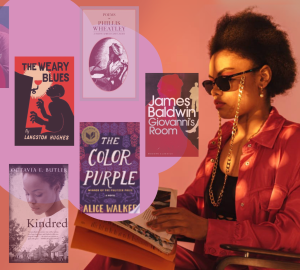
Writers read. And they read a lot. From fiction and nonfiction to poetry and essays, the more writers get to read, the better. I can only imagine how many books my writing professors at SCAD Atlanta have cracked the spines over throughout their careers. After receiving a collective “just one book!?” from their responses, the writing professors thought long and hard on what single book they’d like to recommend. Here’s what they’ve chosen.
Professor Bundy
“A Brief Wondrous Life of Oscar Wao” by Junot Diaz
“The book itself is a wonder, a blend of history, voice, character, culture and a story that borders on mythology and the supernatural,” says Professor Bundy.
Diaz tells the fictional story of Oscar de León, a Dominican boy who grew up in New Jersey. He’s obsessed with science fiction and fantasy, falling in love and curious about a curse that has plagued his family. Professor Bundy has taught this book several times in his English classes, and has no problem rereading it. Because of the book’s complexity and Diaz’s utilization of footnotes, it reads like a puzzle. Which could be a challenge, but proves to be satisfying and fresh with every additional read. “In short: this novel does everything a novel can do.”
Professor Gray
“A Swim in the Pond in the Rain” by George Saunders
Saunders is a professor of creative writing at Syracuse University and this book is a version of what he teaches. Focused on Russian literature, Saunders includes quintessential short stories from the greats like Chekhov, Turgenev, Tolstoy and Gogol. Then, Saunders writes about the experience teaching each story. It’s technical, yet accessible for audiences who want to learn more about the mechanics of narrative, while also training the readers to see the world with newfound curiosity.
“Braided into these experiences are his own approaches to writing. It’s just brilliant and so thoroughly enjoyable,” says Professor Gray.
Professor Ramsdell
“Medusa” by Rosie Hewlett
“Medusa” is a retelling of the famous Greek mythological creature, Medusa. This story is a masterclass in humanizing this iconic monster, deeply complicating her character outside of her snakes for hair. What makes this selection unique is that this novel is not traditionally published. It’s self-published. But that doesn’t mean it’s less than in regards to appeal and prestige. In fact, it won the International Rubery Book of the Year and Rubery Fiction Award in 2021.
“I would hope writers, or perhaps any creatives, would read this book and realize that there are so many ways of getting work out there. If the work is strong, it will find an audience – even if it’s not published in a traditional way,” says Professor Ramsdell.
Professor Sanders
“The Middle Passage” by Charles Johnson
Winner of the National Book Award, “The Middle Passage” is no stranger to praise. Set in 1830, this tells the story of a free Black man from New Orleans who finds his way on a slave ship of rogues and buccaneers. It’s a harrowing sea journey to the African coast and back. While this book is only 209 pages, it packs a powerful punch and manages to provide ample storytelling filled with adventure, dark humor, deep insight, a love affair, plot twists, voodoo, magical realism and Professor Sander’s personal favorite subject, pirates.
“The inhumanity of slavery is exposed in what I can only call a delightful nightmare. A profound commentary on America, class, the slave trade, the humanities, politics — but most of all, storytelling,” says Professor Sanders.
With each book recommendation, there’s a consistent theme of complex characters and storytelling. Whether you’re looking for a masterclass in Russian literature, or wanting to dive into the psyche of a mythological villain, these books are guaranteed to give you some excellent writing.






















